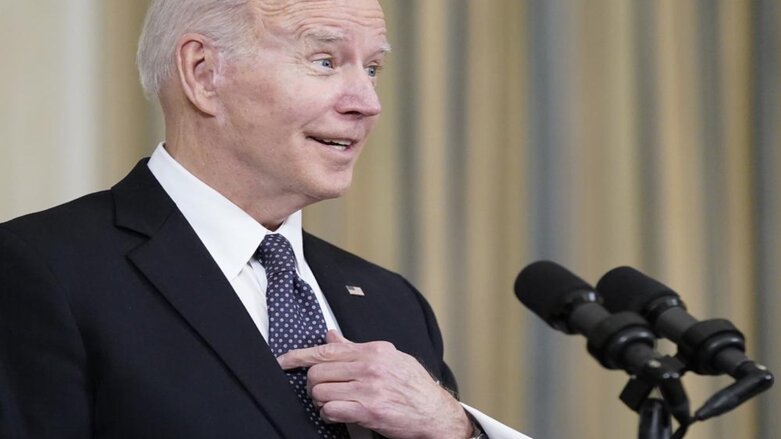US, Europe reaffirm Russian sanctions amid skepticism over Russian overtures

WASHINGTON DC (Kurdistan 24) – US officials on Tuesday—from President Joe Biden on down—reaffirmed their tough stance against Russia's aggression against Ukraine.
The US statements followed negotiations in Turkey between Russia and Ukraine, after which Moscow announced it would "drastically reduce" its attacks around two Ukrainian cities—the capital, Kiev, and the northern city of Chernihiv—to "increase mutual trust and create the necessary conditions for further negotiations."
The US attitude was grounded in the principle: we'll believe it when we see it.
"There is what Russia says, and there is what Russia does," US Secretary of State Antony Blinken said in Rabat in a joint press conference with the Moroccan Foreign Minister. "We're focused on the latter, and what Russia is doing is the continued brutalization of Ukraine."
Pentagon Press Secretary John Kirby is similarly skeptical.
"We believe that this is a repositioning, not a real withdrawal, and that we all should be prepared to watch for a major offensive against other areas of Ukraine," he said.
Lies Beget Mistrust
The US skepticism is rooted in its dealings with Russian President Vladimir Putin in the period before Feb. 24, when Russia launched its assault on Ukraine.
As President Biden explained, speaking in Poland on Saturday, "In the lead-up to the current crisis, the United States and NATO worked for months to engage Russia to avert a war."
"I met with [Putin] in person and talked to him many times on the phone," Biden said. "Time and again, we offered real diplomacy and concrete proposals to strengthen European security, enhance transparency, and build confidence on all sides."
"Repeatedly, [Putin] asserted, 'We have no interest in war,'" Biden continued. "Guaranteed he would not move. Repeatedly saying he would not invade Ukraine. Repeatedly saying Russian troops along the border were there for 'training'—all 180,000 of them."
Those European leaders who met with Putin in their own efforts to avert a Russian assault on Ukraine, such as French President Emmanuel Macron and German Chancellor Olaf Scholz, received the same assurances from the Russian leader as Biden did.
But, as the US President said on Saturday, it was all lies. In fact, Putin's invasion of Ukraine reflected, in Biden's words, "one of the oldest of human impulses: using brute force and disinformation to satisfy a craving for absolute power and control."
Virtual Meeting among US, European Leaders
Early on Tuesday, Biden held a conference call with the leaders of France, Germany, Italy, and Britain.
As the US summary of the call suggests, the five leaders intend to continue their current policy, which is based on four key points: 1) sanctions on Russia; 2) weapons for Ukraine; 3) humanitarian support for the Ukrainian people; 4) maximizing international energy production to reduce dependence on Russian energy exports (an effort to which the KRG is contributing, as circumstances allow).
"The leaders affirmed their determination to continue raising costs on Russia for its brutal attacks on Ukraine," the US summary of the leaders' discussion states. They also pledged "to continue supplying Ukraine with security assistance to defend itself against this unjustified and unprovoked assault" while they reviewed their "assistance to the millions affected by the violence."
They also stressed "the importance of supporting stable energy markets in light of current disruptions due to sanctions."
European Expulsion of Russian Intelligence Officers
Four European countries announced on Tuesday that they were expelling, in total, 48 Russian intelligence officers. The moves—evidently coordinated—underscored the breadth of Russian intelligence activity in Europe.
The Netherlands said it was expelling 17 Russians, described as "intelligence officers masquerading as diplomats," ABC News reported.
In addition, Belgium announced it was expelling 21 Russians, while the Czech Republic announced the expulsion of one. Ireland expelled four, while North Macedonia expelled five.
Last week, Poland announced the expulsion of 45 Russian diplomats, who were, in fact, intelligence officers.
The US welcomed the European moves in a statement issued by State Department Spokesperson Ned Price.
"The United States applauds recent expulsions of Russian intelligence officers by our partners in Europe and around the world," Price said.
"We stand unified with our partners in protecting their national security from the Russian Federation's intelligence threats," Price continued, and "against threats to democracy."
